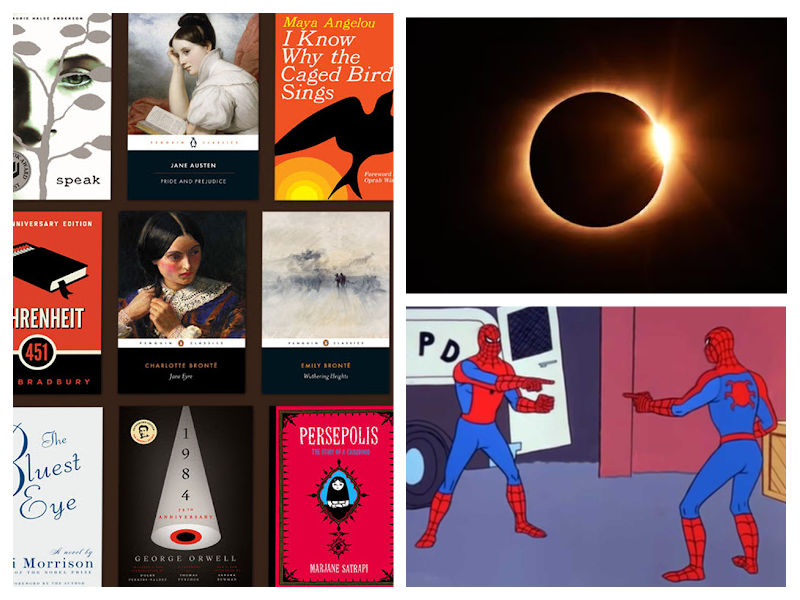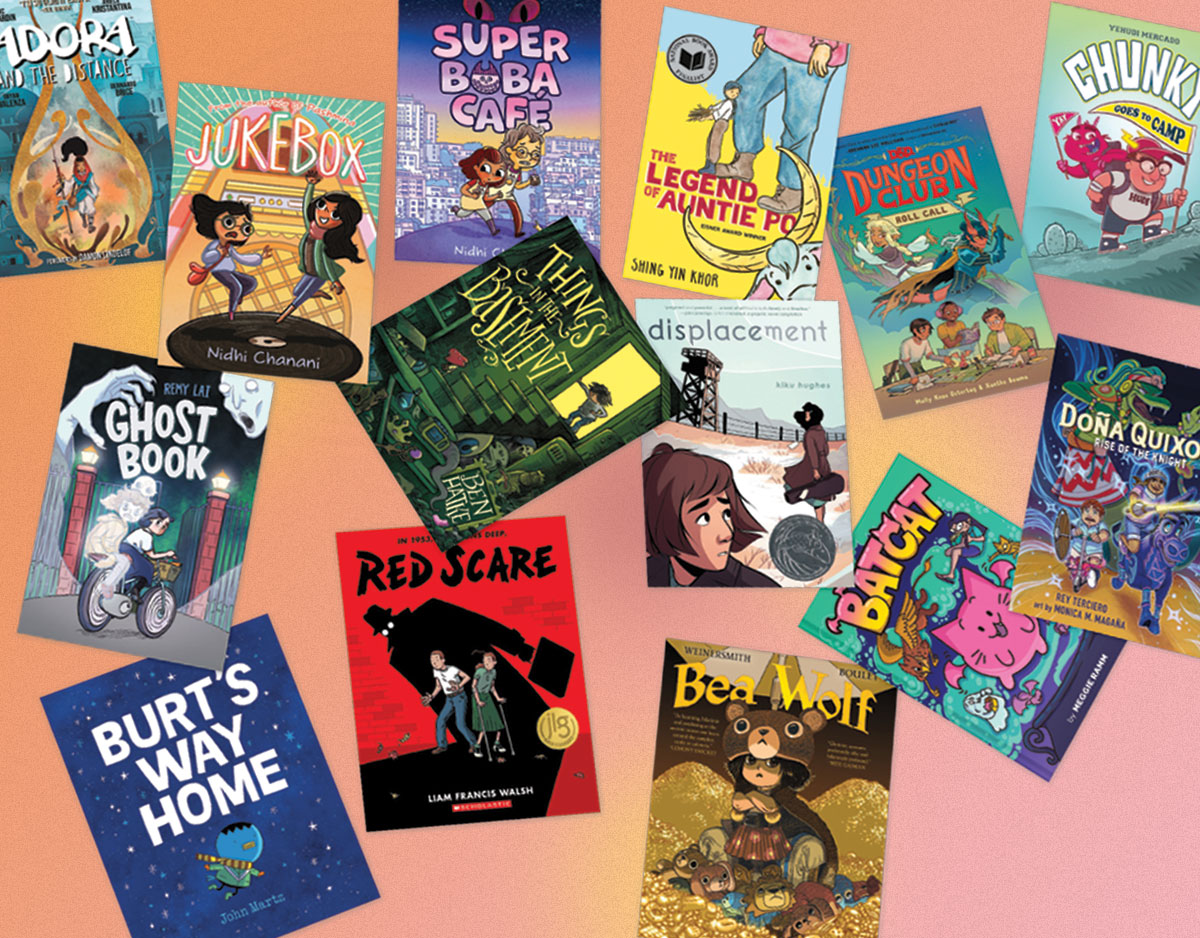Review of the Day: Marcus Vega Doesn't Speak Spanish by Pablo Cartaya
 Marcus Vega Doesn’t Speak Spanish
Marcus Vega Doesn’t Speak Spanish
By Pablo Cartaya
Viking (an imprint of Penguin Random House)
$16.99
ISBN: 9781101997260
Ages 9-12
On shelves now
The other day a woman contacted me and wondered if I could offer any picture book/middle grade/ YA suggestions for a list of various topics. The list consisted of things like “OCD”, “death/grieving”, “trauma”, etc. Some of the subjects were difficult and others too easy (that “death/grieving” category by far had the most titles). And then there were the ones that were almost too broad. “Bullying” fell into that category. I mean, what kind of bullying would be best here? Physical intimidation? Psychological torture? Insidious peer pressure? Sometimes it feels like half the middle grade novels I read feature some form or combination of these three types. In the end, I came up with a couple of titles, and Marcus Vega Doesn’t Speak Spanish was included on that list. This contemporary quest novel, where a boy searches for the father he’s never known, is not a typical bullying narrative, but it does have interesting things to say about how the perception of bullying sometimes overwhelms the act itself, and how adults fall prey to the same stereotypes as the kids they teach. But to be honest, part love letter to Puerto Rico, part Bildungsroman, this is a book that defies categories.
Here’s what we know about Marcus Vega. First off, he’s six feet tall. Second, he’s 180 pounds. And third, he’s in the eighth grade. And I don’t mean he’s been flunked a lot of time and remains in the eighth grade. I mean he’s an eighth grader that was given a heck of a growth spurt. The result is that he makes a tidy sum with his size. Not by bullying kids exactly. Instead, he offers protection (for a price) against bullies, like the nasty Stephen who is always looking for another kid’s weak spot. He finds just such a weak spot in Marcus by insulting his brother, Charlie, who attends middle school and has Down syndrome. When Marcus gets into a fight as a result, he’s faced with a suspension and his mom gets an idea. Why not visit the land of Marcus’s birth, Puerto Rico? Granted he hasn’t been there since he was a baby, but a change of scenery could be good for everyone. And Marcus is on board with the plan, but for reasons of his own. You see, he knows it’s possible that his father, the one who left when he was very young, is on that island. Maybe the two will be able to reconnect like never before. Or maybe, instead, Marcus will find family in Puerto Rico. Just not the kind he was looking for originally.
If you’re an author, you have a variety of choices to make when it comes to your characters. Let’s take Marcus’s dad as an example. I would love to talk with an honest-to-goodness kid about the moment when they’re more clued in to how crummy he is as a human being than Marcus. Marcus isn’t dumb, but Cartaya projects loud and clear the degree to which the kid is fooling himself about his own dad. Essentially every person he runs into on Puerto Rico may as well be carrying a sign saying, “Your dad is a crumb bum” for all the good that would do them. But if you’re Pablo Cartaya, how do you make that clear as crystal at the end of the book? Because the key here isn’t that Marcus’s dad is evil or anything. It’s that he’s weak. And to this end, Mr. Cartaya has the man offer Marcus something so oily and self-serving that it’s just . . . perfect. A brilliant capper that gives Marcus the impetus he needs to say everything to this man that needs to be said.
A deadbeat dad character is best when it’s not, as I said, an embodiment of mustache-twirling evil. But other characters need to be on that level of complexity as well. Take Marcus’s mom. She’s a single woman trying to scrape it together so that she can support two sons, one with Down syndrome. In a lot of books that would make her the saintly mother who knows no ills. What I like about this mom, though, is that there’s a clear-cut understanding that she honestly doesn’t know what she’s doing sometimes. She makes mistakes and she corrects them, but when all is said and done, I think it’s fair to say that she’s knocking it out of the park with these boys. Marcus has problems in school but these are his problems that he is responsible for solving. As for Charlie, he’s the most interesting of all. I haven’t encountered many characters with Down syndrome in middle grade novels before, but I can imagine what some of the pitfalls might be. The easiest thing for an author would be to make Charlie a symbol or a victim rather than a human being. If Charlie were a perfect angel cooing aphorisms and spoonerisms with a dimple in each cheek I probably wouldn’t have been able to turn another page. Instead, Charlie’s a real person. He has his quirks (like an extreme love for “Willy Wonka and the Chocolate Factory”), his dislikes, his stubbornness, and his deep and abiding affection for his brother. There’s a moment at the end of the book when Marcus says that Charlie is “the coolest kid in the world,” and you truly believe that he thinks that. And, more importantly, that he might be right.
The elephant in the room (if this review were a room, that is) is the place that makes up the bulk of the setting. The Puerto Rico of this book is a pre-hurricane Puerto Rico, a fact that Mr. Cartaya makes clear from the get-go. As he writes in the front, “I hope that now these pages honor the memory of the lives lost.” This isn’t a hurricane novel (those will come) but a celebration of a place that is as much a character in this book as any of the people who live or visit there. It will be the rare child reader who doesn’t want to go there after reading this book.
The book I found myself pairing this with, in an odd way, was Tight by Torrey Maldonado. In both books you have a form of bullying that’s far more complex and difficult to handle than your classic schoolyard gimme-your-lunch-money type bullying. Then I started thinking of this year’s Crush by Svetlana Chmakova, which is a perfect complement to this book. In both cases you have a quiet, very big kid with an interior life all his own who is mistaken as a bully from time to time but couldn’t be sweeter. But there’s really nothing quite to compare to Marcus Vega. It doesn’t slot neatly into any holes. You could call it a book of brotherly love, or a son’s search for his father. You could say it was about finding family, or learning to accept yourself, or coping with change. It’s all those things wrapped up together, and by golly it not only also makes sense but hits you where it hurts. You honestly like the people in this book and want to spend time with them, wherever they go. The only category Marcus Vega Doesn’t Speak Spanish truly belongs in is the “good book” category. One that kids will keep dipping into for years to come.
On shelves now.
Source: Final copy sent from publisher for review.
Filed under: Best Books, Best Books of 2018, Reviews, Reviews 2018
About Betsy Bird
Betsy Bird is currently the Collection Development Manager of the Evanston Public Library system and a former Materials Specialist for New York Public Library. She has served on Newbery, written for Horn Book, and has done other lovely little things that she'd love to tell you about but that she's sure you'd find more interesting to hear of in person. Her opinions are her own and do not reflect those of EPL, SLJ, or any of the other acronyms you might be able to name. Follow her on Twitter: @fuseeight.
ADVERTISEMENT
ADVERTISEMENT
SLJ Blog Network
The Moral Dilemma of THE MONSTER AT THE END OF THIS BOOK
Winnie-The-Pooh | Review
Parsing Religion in Public Schools
ADVERTISEMENT







Thanks, Betsy. After reading your review today, I can’t wait to read this book. Do you believe it is one that should be considered by the Newbery committee?
I’m sure it’s certainly on their radar. Mr. Cartaya got some Newbery buzz potential last year, and in my experience that sort of thing tends to carry over to subsequent books.